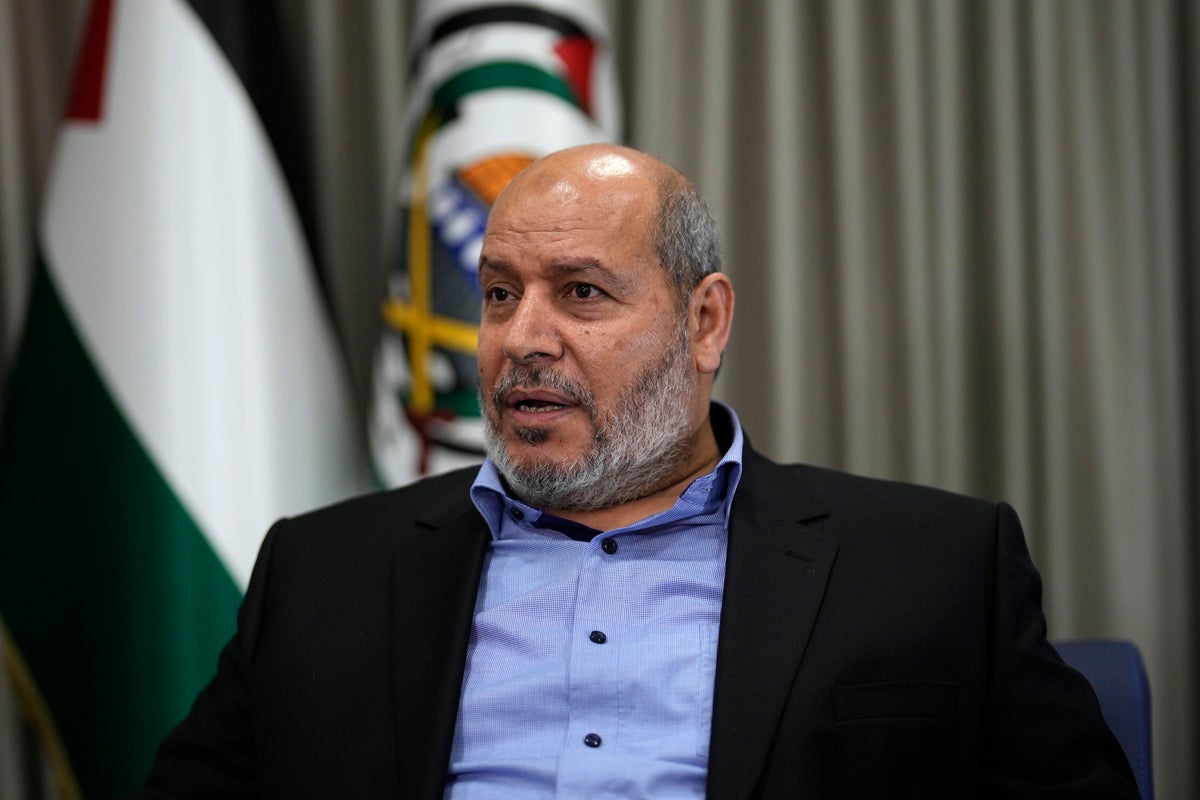
Talks between Hamas and Israel have commenced this week in Egypt, with Qatar and the US mediating after Donald Trump expressed optimism that a deal can be struck to end the war in Gaza.
Hamas will be represented by its top negotiator, Khalil Al-Hayya, who survived an Israeli assassination attempt last month in Doha. The strike on Qatar, an ally of the West, was condemned by the international community including the US and prompted an apology from Israeli Prime Minister Benjamin Netanyahu.
Hayya’s son, Himam, and officer director were killed in the strikes on 9 September. But it is not the first time he has lost a family member during the fierce and decades-long battle between Israel and Hamas.
The Israeli military said it had targeted Hamas officials, shortly after the militant group admitted being behind a gun attack in Jerusalem that killed six people.
Hayya, an increasingly central figure in the leadership of the Palestinian militant group since both Ismail Haniyeh and Yahya Sinwar were killed last year, has also been at the heart of ceasefire negotiations during the war that erupted two years ago.
The former deputy chairman of Hamas is part of a five-man leadership council that has led Hamas since Sinwar was killed by Israel last October in Gaza.
Hailing from the Gaza Strip, Hayya has lost several close relatives – including his wife, eldest son, three children, three brothers, a daughter-in-law and grandson – to Israeli strikes in the Gaza Strip. He is a veteran member of the Islamist group.
“The pain of losing those close to me does not erase the killing and destruction in the Gaza Strip,” al-Hayya said in his first interview following his attempted killing in Qatar, with Al-Araby on Sunday. He said he did not make a distinction between his family and other Palestinian casualties.
Regarded as having good ties with Iran, a vital source of arms and finance for Hamas, he has been closely involved in the group’s efforts to broker several truces with Israel, playing a key role in ending a 2014 conflict and again in attempts to secure an end to the current Gaza war.
Born in the Gaza Strip in 1960, Hayya has been part of Hamas since it was set up in 1987. In the early 1980s, he joined the Muslim Brotherhood – the Sunni Islamist movement from which Hamas emerged – along with Haniyeh and Sinwar, Hamas sources say.
In Gaza, he was detained several times by Israel.
In 2007, an Israeli air strike hit his family home in Gaza City’s Sejaiyeh quarter, killing several of his relatives, and during the 2014 war between Hamas and Israel, the house of Hayya’s eldest son, Osama, was bombed, killing him, his wife and three of their children.
Hayya was not there during the attacks. He left Gaza several years ago, serving as a Hamas point person for ties with the Arab and Islamic worlds and basing himself in Qatar for the role.
Hayya accompanied Haniyeh to Tehran for the visit in July during which he was assassinated.
‘Limited operation’
Hayya has been cited as saying the October 7 attacks that ignited the Gaza war had been meant as a limited operation by Hamas to capture “a number of soldiers” to swap for jailed Palestinians.
“But the Zionist army unit completely collapsed,” he said in comments published by the Hamas-linked Palestinian Information Centre, referring to Israel’s military.
Hamas-led militants killed some 1,200 people and abducted another 250 on October 7, 2023, according to Israeli tolls. More than 64,000 Palestinians have been killed in Israel’s retaliatory offensive in Gaza since then, according to the Gaza health ministry.
Hayya has said the attack succeeded in bringing the Palestinian issue back into international focus.
Hayya has led Hamas’ delegations in mediated talks with Israel to try to secure a Gaza ceasefire deal that would have included an exchange of Israelis abducted by Hamas for Palestinians in Israeli jails.
He has performed other high-profile political work for Hamas. In 2022, he led a Hamas delegation to Damascus to mend ties with former Syrian President Bashar al-Assad, which were broken a decade earlier when the movement endorsed the largely Sunni uprising against Assad, a member of the minority Alawite sect.
The breach had strained a regional alliance built by Iran to counter Israel and the United States.
Israel’s delegation will be represented by its Strategic Minister Ron Dermer, while American politician and US envoy to the Middle East, Steve Witkoff, and President Trump’s son-in-law Jared Kushner will negotiate on behalf of the US.
They will also be joined by prime minister Sheikh Mohammed bin Abdulrahman al-Thani of Qatar, who has played a key role in previous talks.
